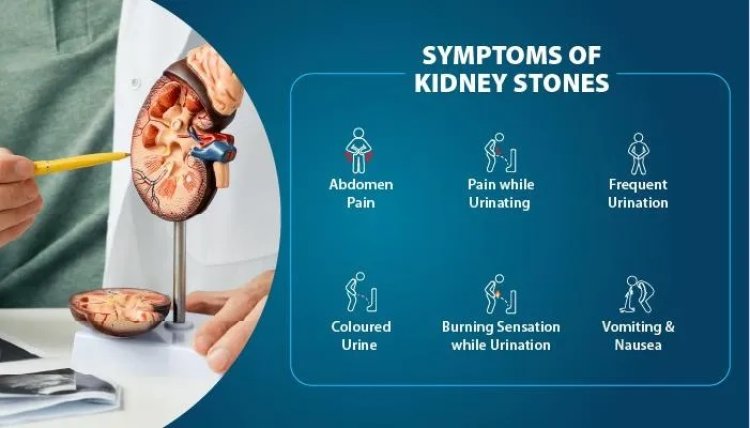What Size of Kidney Stone Requires Surgery?
Apollo Hospital Chennai of excellence can assist patients in overcoming the excruciating pain and other symptoms caused by kidney stones.
Share this Post to earn Money ( Upto ₹100 per 1000 Views )

Kidney stones, a common urinary tract disorder, affect millions of people worldwide. These hard mineral deposits can cause severe pain and discomfort, often leading to a significant impact on a person's quality of life. One critical question that arises when dealing with kidney stones is determining when surgery is necessary. This article aims to shed light on the nature of kidney stones, their sizes, the different surgical options available, the causes and symptoms, as well as the risk factors associated with them.
What are Kidney Stones?
Kidney stones are hard deposits made of minerals and salts that form inside the kidneys. They can develop when the urine becomes concentrated, allowing minerals to crystallize and stick together. While they originate in the kidneys, they can affect any part of the urinary tract, including the bladder. The stones vary in size and can be as small as a grain of sand or as large as a golf ball.
Understanding the Size of Kidney Stones
The size of a kidney stone is a critical factor in determining the appropriate treatment method. Stones smaller than 4 millimeters (mm) in diameter often pass on their own, typically within a few weeks. Stones between 4 mm and 6 mm have a moderate chance of passing without surgical intervention. However, stones larger than 6 mm are less likely to pass on their own and may require surgical intervention.
Surgeries for Different Types of Kidney Stones
When a kidney stone is too large to pass naturally or causes persistent symptoms, surgery might be necessary. The most common surgical procedures include:
Extracorporeal Shock Wave Lithotripsy (ESWL): This non-invasive procedure uses shock waves to break the stones into smaller pieces that can pass through the urinary tract more easily.
Ureteroscopy: A small scope is inserted into the urethra, through the bladder, to the stone. It's then either removed or broken into smaller pieces.
Percutaneous Nephrolithotomy: Used for larger stones, this surgery involves making a small incision in the back to remove the stone directly from the kidney.
Causes and Symptoms of Kidney Stones
Kidney stones form when there's a decrease in urine volume or an excess of stone-forming substances in the urine. Dehydration is a common cause, as it leads to more concentrated urine. Symptoms of kidney stones can include severe pain in the side and back, pain during urination, discolored or foul-smelling urine, nausea, vomiting, and the frequent urge to urinate.
Risk Factors of Kidney Stones
Several factors can increase the risk of developing kidney stones, including:
-
Dietary Factors: A high intake of protein, sodium, and sugar, especially from animal sources, can increase the risk.
-
Hydration Levels: Not drinking enough water each day can increase the risk of kidney stones.
-
Medical Conditions: Conditions such as obesity, certain surgeries, and digestive diseases can contribute to the formation of kidney stones.
-
Family History: Having a family member with kidney stones can increase the risk.
-
Certain Supplements and Medications: Vitamin C supplements, laxatives, and certain medications can increase the risk of stone formation.
In Conclusion,
The necessity of surgery for kidney stones largely depends on the size and symptoms of the stone. With a wide array of causes and risk factors, it's important to understand and implement preventive measures to minimize the risk of developing kidney stones. Regular hydration, a balanced diet, and an understanding of personal risk factors are key. If you suspect you have a kidney stone, consult with a healthcare provider for an appropriate diagnosis and treatment plan.
Apollo Hospital Chennai of excellence can assist patients in overcoming the excruciating pain and other symptoms caused by kidney stones. With specialized and board-certified doctors and access to state-of-the-art technology, our doctors will plan a personalized plan per the diagnosis, patient's preference, and need of the hour. Schedule an appointment today or visit the nearest Apollo Spectra Hospital with your concerns.















